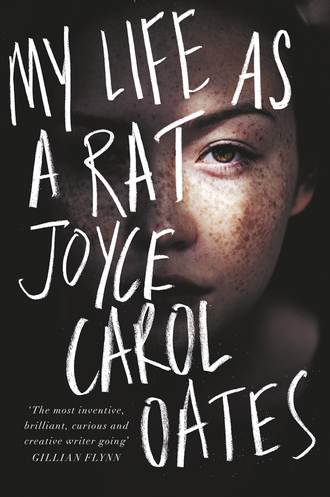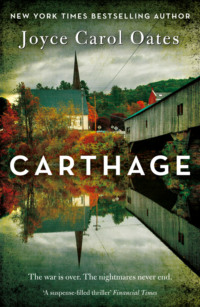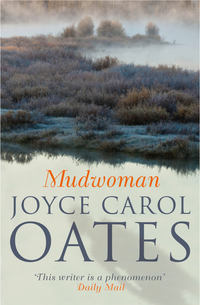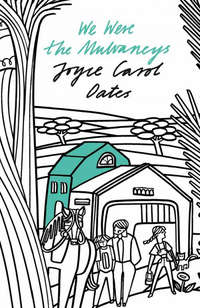
Полная версия
My Life as a Rat
This was about as much as Daddy would say about his years as a soldier in the U.S. Army, when Lyndon B. Johnson was president.
“I enlisted. I was nineteen. I was stupid.”
We knew from relatives that Daddy had been “cited for heroism” helping to evacuate wounded soldiers while wounded himself. He’d been awarded medals—kept in a box in the attic.
My brothers tried to get him to talk about being a soldier in the U.S. military and in the war but he never would. In a good mood after a few ales he’d concede he’d been God-damned lucky the shrapnel that got him had been in his ass, not his groin, or none of “you kids” would’ve been born; in a not-good mood he’d say only that Vietnam had been a mistake but not just his mistake, the whole country had gone bat-shit crazy.
He’d hated Nixon more than Johnson, even. That a president would lie to people who trusted him and not give a damn how many thousands of people died because of him, Daddy shook his head, speechless in indignation.
Most politicians were those blood-sucking sons of bitches. Cocksuckers. Fuckers. Even Kerrigan relatives who were involved in local, western New York State politics were untrustworthy, opportunists and crooks.
Daddy would only talk about Vietnam with other veterans. He had a scattering of friends who were veterans of Vietnam, Korea, and World War II he went out drinking with, but never invited to the house; our mother did not know their wives, and our father had no interest in introducing her. Taverns, saloons, pubs, roadhouses—these were the gathering places of men like Daddy, almost exclusively male, relaxed and companionable. In such places they watched championship boxing matches, baseball and football, on TV. They laughed uproariously. They smoked, they drank. No one chided them for drinking too much. No one waved away smoke with prissy expressions. Who’d want women in such places? Women complicated things, spoiled things, at least women who were wives.
Returning home late from an evening with these men Daddy was likely to be heavy-footed on the stairs. Often he woke us, cursing when he missed a step, or collided in the dark with something.
If one of us left something on the stairs, textbook, pair of shoes, Daddy might give it a good kick out of pure indignation.
In our beds, we might hear them. Our mother’s murmurous voice that might be startled, pleading. Our father’s voice slurred, abrasive, loud.
A sound of a door being slammed, hard. And though we listened with quick-beating hearts, often we heard nothing further.
Katie had hoped to interview our father for a seventh-grade social studies project involving “military veterans” but this did not turn out well. Calm at first telling her no, not possible but when Katie naively persisted losing his temper, furious and profane, threatening to call the teacher, to tell that woman to go fuck herself until—at last—our mother was able to persuade him not to make such a call, not to jeopardize Katie’s standing with her teacher or at the school, please just forget it, try to forget, the teacher had only meant well, Katie was in no way to blame and should not be punished.
Punished was something our father could understand. Punished unfairly, he particularly understood.
Katie would remember that incident for the rest of her life. As I will, too.
You didn’t push Daddy, and you didn’t take Daddy for granted. It was a mistake to assume anything about him. His generosity, his pride. Dignity, reputation. Not being disgraced or disrespected. Not allowing your name to be dragged through the dirt.
There were many Kerrigans scattered through the counties of western New York State. Most of these had emigrated from the west of Ireland, in and near Galway, in the 1930s, or were their offspring. Some were closely related to our father, some were distant, strangers known only by name. Some were relatives whom we saw frequently and some were estranged whom we never saw.
We would not know why, exactly. Why some Kerrigans were great guys, you’d trust with your life. Others were sons of bitches, not to be trusted.
We did notice, my sisters and me, that girl-cousins with whom we’d been friendly, and liked, would sometimes become inaccessible to us—their parents were no longer on Daddy’s good side, they’d been banished from Daddy’s circle of friends.
If we asked our mother what had happened she might say evasively, “Oh—ask your father.” She did not want to become involved in our father’s feuds because a remark of hers might get back to him and anger him. Personal questions annoyed our father and we did not want to annoy our father whom we adored and feared in about equal measure.
For instance: What happened between our father and Tommy Kerrigan, an older relative who’d been a U.S. congressman and mayor of South Niagara for several terms? Tommy Kerrigan was the most prominent of all the Kerrigans and certainly the most well-to-do. He’d been a Democrat at one time, and he’d been a Republican. He’d had a brief career as an Independent—a “reform” candidate. He’d been a liberal in some issues, and a conservative in others. He’d supported local labor unions but he’d also supported South Niagara law enforcement, which was notorious for its racist bias against African Americans; as a mayor he’d defended police killings of unarmed persons and had blatantly campaigned as a “law and order” candidate. Tommy Kerrigan was a “decorated” World War II veteran who supported American wars and military interventions, unquestioningly. He supported the Vietnam War until the U.S. withdrew troops in 1973 and it was his belief that Richard Nixon had been “hounded” out of office by his enemies. Naturally Tommy Kerrigan was critical of rallies and demonstrations against the war which he considered “traitorous”—“treasonous.” He defended the actions of the police in dealing roughly with antiwar protesters as they’d dealt roughly with civil rights marchers in an earlier era. After a scandal in the early 1980s he’d had to abruptly retire from public life, narrowly escaping (it was said) indictment for bribe taking and extortion, but he continued to live in South Niagara, in a showy Victorian mansion in the city’s most prestigious residential neighborhood, and he was still exerting political influence in circuitous ways while I was growing up. It was speculated that there’d been bad blood between Tom Kerrigan and our father’s father and so out of loyalty our father was permanently estranged from Tom Kerrigan as well. When a softball field was built in South Niagara and given the name Kerrigan Field no one in our family was invited to the dedication and the opening game; if our brothers played baseball at Kerrigan Field, they knew better than to mention the fact to our father.
Carefully Daddy would say of Tom Kerrigan that there was no love lost between our families though at other times he might shake his head and admire Tom Kerrigan as the most devious son of a bitch since Joe McCarthy.
And if anyone asked us if we were related to Tom Kerrigan, Daddy laughed and said, tell them politely No. I am not.
WE LIVED IN A TWO-STORY WOOD FRAME HOUSE AT 388 BLACK Rock Street, South Niagara, that Daddy kept in scrupulous repair: roof, gutters, windows (caulked), chimney, shingle board sides painted metallic-gray, shutters navy blue. When the front walk began to crack, Daddy poured his own cement, to replace it; when the asphalt driveway began to crack and shatter, Daddy hired a crew to replace it under his direction. He knew where to buy construction materials, how to buy at a discount, he scorned using middlemen. In the long harsh winters of heavy snowfall in South Niagara Daddy made sure our walk and driveway were shoveled properly, not carelessly as many of our neighbors’ walks and driveways were shoveled; in warmer months, Daddy made sure that our (small) front yard and our (quarter-acre) backyard were kept properly mowed. My brothers did much of this work, and sometimes my older sisters, and if Daddy wasn’t satisfied that the task had been done well, he might finish it himself, in a fury of disgust. By trade he was a plumber and a pipe fitter but he’d taught himself carpentry and he dared to undertake (minor) electrical work for he resented paying other men to do anything he might reasonably do himself. It wasn’t just saving money, though Daddy was notoriously frugal; it had to do with pride, integrity. If you were a (male) Kerrigan you were quick to take offense at the very possibility that someone might be taking advantage of you. Being made a fool of was the worst of humiliations.
As long as I lived in the house on Black Rock Street, as far back as I could remember, a project of Daddy’s was under way: replacing linoleum on the kitchen floor, replacing the sink, or the counter; repainting rooms, or the entire outside of the house; hammering shingles onto the roof, building an addition at the rear of the house where for a few difficult years, Daddy’s elderly, ailing father would live, convulsed in coughing fits that sounded like gravel being rapidly, roughly shoveled.
Daddy was a perfectionist and could not walk away from anything he believed to be half-assed.
Daddy kept a sharp eye on neighbors’ houses, properties. He did not much care that lawns at other houses were scrubby and burnt out in the summer but he did care if grass wasn’t mowed at reasonable intervals, if it grew tall enough to look unsightly, and to go to seed; he cared if trees were allowed to become diseased, and to shed their limbs on the street. He cared very much if properties on our block of Black Rock were allowed to grow shabby, derelict. Particularly, Daddy grew upset if a house was allowed to go vacant, for bad things could come of vacant properties, he knew from his own boyhood with his brothers and cousins raising hell in places not properly supervised.
Back of our house was a yard that seemed large, and deep, running into municipal-owned uncultivated acreage on the steep bank of the Niagara River. There were trees of which Daddy was proud—a tall red maple that turned fiery-red and splendid in October, an even taller oak, a row of evergreens. (But Daddy was unsentimental about cutting down the oak after it was damaged by a windstorm, and he feared it might be blown down onto the house; he’d cut it down himself with a rented chain saw.) My mother tried to cultivate beds of flowers, with varying degrees of success: wisteria, peonies, day lilies, roses assailed by Japanese beetles, slugs, black rot and mold, that often defeated her by mid-summer for Mom could not enlist her older children’s help with the property as Daddy could.
Our house was at the dead end of Black Rock Street above the river.
I cried a lot when I was sent away. Any river or stream I saw, even on TV or in a photograph, tears would be triggered. You have to get hold of yourself, Violet. You will make yourself sick. You can’t—just— keep—crying … My aunt Irma pleaded with me.
The poor woman, I was not nice to her. She could not bear a broken heart in a child impossible to heal by any effort of her own.
No matter how far away I came to live from the Niagara River, it has gotten into my dreams. For it is not like most other rivers—relatively short (thirty-six miles), and relatively narrow (at its widest, eighty-five hundred feet), and exceptionally fast-moving and turbulent. As you approach the river calls to you—whispers that become ever louder, deafening. The river is turbulent like a living thing shivering inside its skin. Miles from the thunderous falls like a nightmare that calls—Come! Come here. Strife and suffering are absolved here.
That morning in December when you wake to see that the river has frozen all the way across, or nearly; corrugated black ice with a fine light dusting of snow over it, the eye registers as beauty.
But I had a happy childhood in that house. No one can take that from me.
Best Kisses!
A GAME. A HAPPY GAME. THE WAY MOM WOULD STOOP OVER to kiss me, suddenly.
When I was a little girl. Best kisses come by surprise!
Lacing her (strong) fingers through my (smaller) fingers. Securing my fingers with hers. Preparing to cross a busy street. Ready. Set. Go!
A long time ago when Mommy loved me as much as Daddy did. When I knew (without needing to be told) that Mommy would take care of me and keep me from harm even if this harm was Daddy.
“IT’S EASY TO LOVE THEM WHEN THEY’RE LITTLE”—MOM LAUGHED, talking with a friend. “Later, not so easy.”
Obituary
THIS CLIPPING FROM THE SOUTH NIAGARA UNION JOURNAL I saved until it became so dry it fell into pieces in my fingers. An obituary beneath a photograph of a shyly smiling black boy with a gap between two prominent front teeth. Seventeen when he’d died but in the photo he looks as if he could be fifteen, even fourteen.
Hadrien Johnson, 17. Resident of 29 Howard Street, South Niagara. Varsity softball and basketball at South Niagara High School. Honor roll 1, 2, 3. Youth Choir, African Methodist Episcopal Church. Died in South Niagara General Hospital, November 11, 1991, of severe head wounds following an attack in the late evening of November 2 by yet-unidentified assailants as he was bicycling to his home. Survived by his mother, Ethel, his sisters, Louise and Ida, and his brothers, Tyrone, Medrick, and Herman. Services Monday at African Methodist Episcopal Church.
People would ask if I’d known Hadrian Johnson. (The name was misspelled in the newspaper obituary but corrected in subsequent articles.) No! I had not known him—he was a junior at the high school, I was in seventh grade. His sister Louise was a year older than me, at the middle school, but I did not know Louise either.
There were no African American classmates I knew well. All of my friends were white like me and all of them lived within a few blocks of our house on Black Rock Street.
It was only after his death that I came to know Hadrian Johnson. It was only after his death that we came to be associated in people’s minds. Hadrian Johnson. Violet Rue Kerrigan.
Not that it did any good for Hadrian Johnson, who was dead. And it was the worst thing that could have happened to Violet Rue Kerrigan.
“Boys Will Be Boys”
W AS IT WONDERFUL TO HAVE BROTHERS WHEN YOU WERE growing up? Older brothers? Who could look out for you?
Girls lacking older brothers would ask me. How wistful they were! Having to fend on their own.
I didn’t just adore my brothers, I was proud of them. Just the fact—My big brothers! Mine.
For girls are keenly sensitive of needing to be looked after. In certain circumstances, like school. Not to be alone, exposed, unprotected. Vulnerable.
Not measurable but very real—the power of older brothers to forestall teasing, bullying, harassment, threats from other boys made against girls. The protective power of older brothers by their mere existence.
The sexual threat of boys is greatly diminished, by the (mere) existence of a girl’s brothers.
Unless of course the girl’s brothers are themselves the (sexual) threat.
Parents have not a clue. Cannot guess. The (secret) lives of children, adolescents. Thinking that, because we are quiet, or docile (seeming), because we smile on cue and seem happy, because we are no trouble, that our inner lives are placid, and not churning and choppy and terrifying as the Niagara River as it gathers momentum rushing to the Falls.
Did you adore your brothers, Vi’let?
Sure, you had to!
IT’S TRUE. I ADORED MY BROTHERS.
Not so much Rick, the youngest, who resembled me temperamentally, and who was a reasonably good student, as I was, and sweet-natured, but the other, older boys—Jerr, Lionel, Les.
They were quick-tempered and loud and impatient and bossy. Out of the earshot of adults they were profane, even obscene. They were funny—crass and crude. And loud—did I say loud? Voices, footsteps. On the stairs. Opening and shutting doors. Colliding with me if I didn’t get out of their way.
Ignoring me, usually. Of course, why’d my brothers take note of me?
They were not so polite to Mom, sometimes. Mouthy, she’d call them. But in our father’s presence, they were watchful, wary. They behaved.
If Daddy became annoyed with one of them he had ways of disciplining: sometimes a sharp, level look; sometimes an uplifted hand, the flat of the hand, a fist.
Flick of Devil-Daddy tongue which the boys could not miss. Hot red, sharp-pointed tongue like a blade slicing their hearts. But in the next instant, gone.
Even so, outside the house the older Kerrigan boys sometimes got into trouble.
Almost there was a hushed reverent air to the phrase—into trouble.
The first time I was too young to know what had happened. Nor did Katie know. And if Miriam knew, she wouldn’t tell us.
On the phone with relatives our mother spoke derisively: “It’s nothing. It’s a stupid rumor. Those liars.”
Though sometimes her voice quavered: “It’s her word against theirs! That’s what everybody says, and that’s a legal fact.”
Near-inaudibly Mom would speak into the phone, in the kitchen. Seated, hunched over, pressing the avocado-plastic receiver against her ear as if trying to keep the words inside from spilling out.
If Katie asked what was going on Mom said, scolding: “Never mind! It’s no business of you girls.”
You girls. Often we’d hear from Mom’s mouth.
Her gaze avoiding us, skittering away across the linoleum floor.
We were mystified but we knew better than to persist in questions. We knew better than to ask our brothers who were the ones in trouble. (And if we asked Rick he’d shrug us off—Don’t ask me, ask them.) No possibility of asking our father who was the custodian of all secrets and didn’t take kindly to being questioned about anything. And eventually we learned what had happened, or some version of what had happened, as we learned most things not meant for us to know, piecing together fragments of stories as our mother sometimes, with a curious sort of self-punishing patience, fitted together broken crockery to mend with glue.
The girl whose word was against theirs was a fourteen-year-old special-needs student at the middle school where Lionel was in ninth grade. Jerr was sixteen, a junior at the high school.
Liza Deaver was the name. Liza Lizard she was called for her face was splotched like a turtle’s shell.
At fourteen she had the body of a mature woman, fattish, slow-moving, with thick plastic-rimmed glasses and lenses that magnified her eyes. She wore slacks with elastic waistbands and plaid shirts that billowed loose over her big soft breasts and belly. We’d overheard our brothers imitating her speech which was slow and stammering and whining like the speech of a young child.
Liza’s mental age was said to be nine or ten. And it would remain that age through her life.
Liza was physically clumsy, poorly coordinated, and often made her way swaying and lurching with one eye shut, as if seeing with both eyes confused her. Oddly, unpredictably, Liza sometimes burst out in anger and tears and had to be sent home from school by the special-needs teacher.
We’d heard that, in the special-needs classroom at the school, Liza had some talent for drawing. Except her drawings were of people with large round balloon-faces on small stick legs—just faces, legs.
Retards, they were called. Special-needs was the adult term, retards what others kids called them.
Liza Lizard was a cruel name. Yet sometimes it seemed, if boys called this name after her, Liza misheard it, and thought it might be something else, and turned to them with a peculiar squinting smile, a childish sort of hope.
I did not—ever—utter aloud the name Liza Lizard. But like other girls I may have sniggered when I heard it.
It is shameful now to recall—Liza Lizard. You did not—ever—want the attention of the crude coarse cruel boys to turn upon you and so possibly, yes—you did snigger when you heard it.
No news item about the incident in Patriot Park would appear in the South Niagara Union Journal. Only minors were involved, and the (alleged) victim so unreliable.
Sometimes in Liza Deaver’s confused telling there were just five or six boys involved. Sometimes, many more—ten, twelve.
Sometimes Liza Deaver remembered a few names. Sometimes, just one or two.
What would come to be generally known was that a loose group of boys between the approximate ages of fourteen and seventeen, not a gang, not even friends had cajoled Liza into coming with them to Patriot Park after school. One of the older boys, not a Kerrigan, had been friendly with Liza, or rather had pretended to be friendly with Liza, so Liza would boast that he was my boyfriend.
The Kerrigan brothers Jerome Jr. and Lionel were not the ringleaders in the assault—if there was an “assault.” This was much-reiterated by my brothers. All they’d done (they would claim) was follow other boys tramping through muddy playing fields and past skeletal trellises in the municipal rose garden to the swimming pool, to the weatherworn stucco building where refreshments were sold in summer and where there were foul-smelling restrooms and changing rooms. In the off-season the building was deserted, dead leaves blew about the cement walk. But the restrooms were kept unlocked through the year.
The boy who was Liza Deaver’s “boyfriend” led Liza into the men’s room saying they had “nice surprises” for her.
It was so, Liza Deaver liked “surprises.” Usually candy bars, snacks in cellophane wrappers from a corner store, cans of sugary soda pop. Sometimes these were given to her by kindly persons who knew her and her family and sometimes by others who were not so kindly.
Questioned afterward by parents, school authorities, Family Court officers the boys would claim that Liza had “wanted” to come with them. Going to the park had been “her idea.” Into the men’s restroom, her idea. She’d told them that she had done such things with her brothers and other boys and sometimes they gave her “surprises,” and sometimes they didn’t.
Liza Deaver denied this. Liza’s parents denied it, adamantly.
Liza Deaver had not been injured enough to require hospitalization but she’d been examined in an emergency room and treated for cuts, bruises, bloodied nose and teeth, “chafings” in the vaginal and anal areas. Clumps of hair had been pulled from her head and (it was whispered) the boys had “grabbed and pulled out” pubic hairs of which (it was whispered) Liza had many.
Still the boys insisted that it had been Liza’s idea. They’d been “nice” to her, they said. These gifts they’d given her: a Mars bar with just a small bite missing, a plastic bead necklace found in the trash, a small stuffed puppy with button eyes, a perfumy deodorant. (Liza Deaver was notorious for her strong, horsey odor.) It was not clear how long Liza remained in the restroom with the boys for Liza lacked a firm grasp of the passage of time but the boys insisted that it had been for “only a few minutes”—“definitely no more than a half hour.” It was 5:40 P.M. by the time Liza limped home, a distance of about a mile; it was estimated that the boys had led Liza away from school at 3:30 P.M., though accounts differed about who exactly had been with Liza from the first, and who had joined later. The fact that Liza had brought home with her the “gifts” the boys had given her seemed to suggest that she’d been happy to receive them, for otherwise—wouldn’t she have thrown them away, in disgust?







